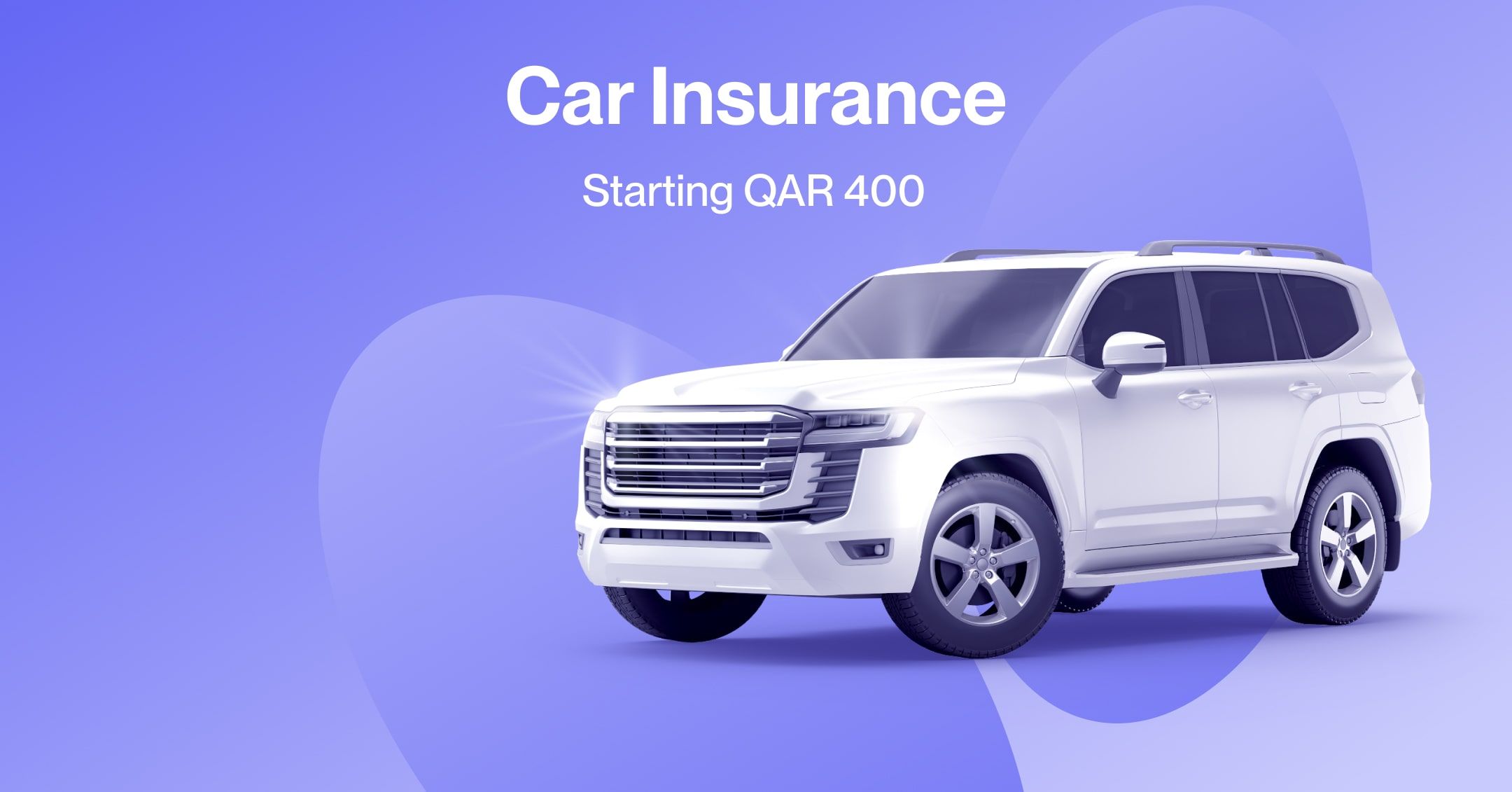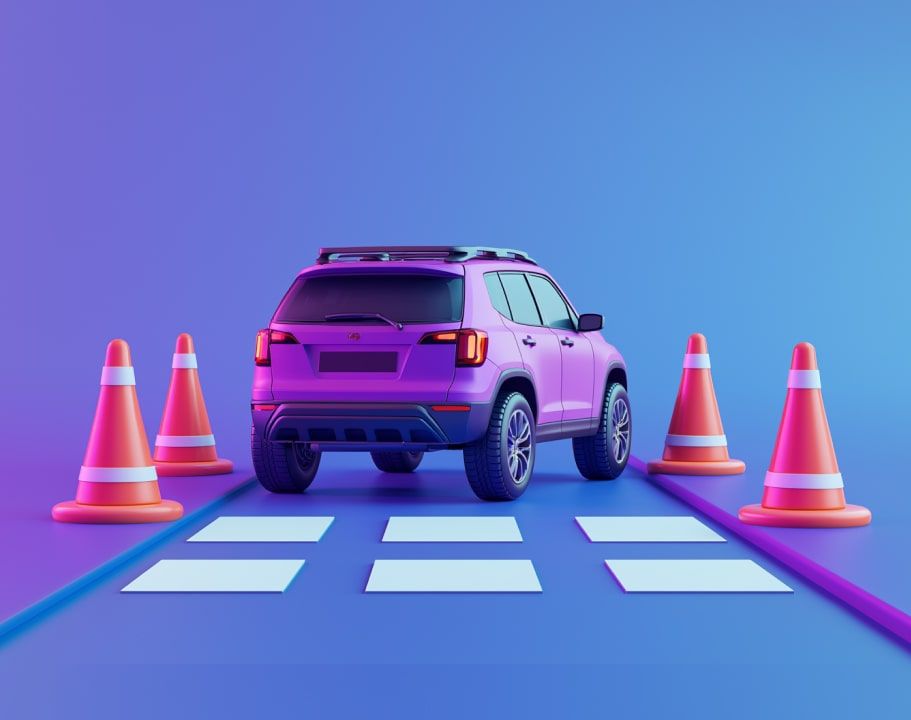Contents
Driving in Qatar comes with its own set of requirements, processes, and training options. This guide takes you through each stage, from enrolling in a school to completing your tests, so you know exactly what to expect.
Where to learn driving and required documents
Learning to drive is about acquiring essential skills, understanding road rules, and mastering safety protocols. All driving schools in Qatar operate under the oversight of the Ministry of Interior's General Directorate of Traffic, ensuring a standardized curriculum across the board. While the training curriculum is consistent, the reputation and student success rates of various driving schools can vary.
Some of the most reputable driving schools in Qatar are: Doha Driving Academy, Karwa Driving School, Gulf Driving School, Al Khebra Driving Academy, and Alijarah Driving Academy.
Required documents
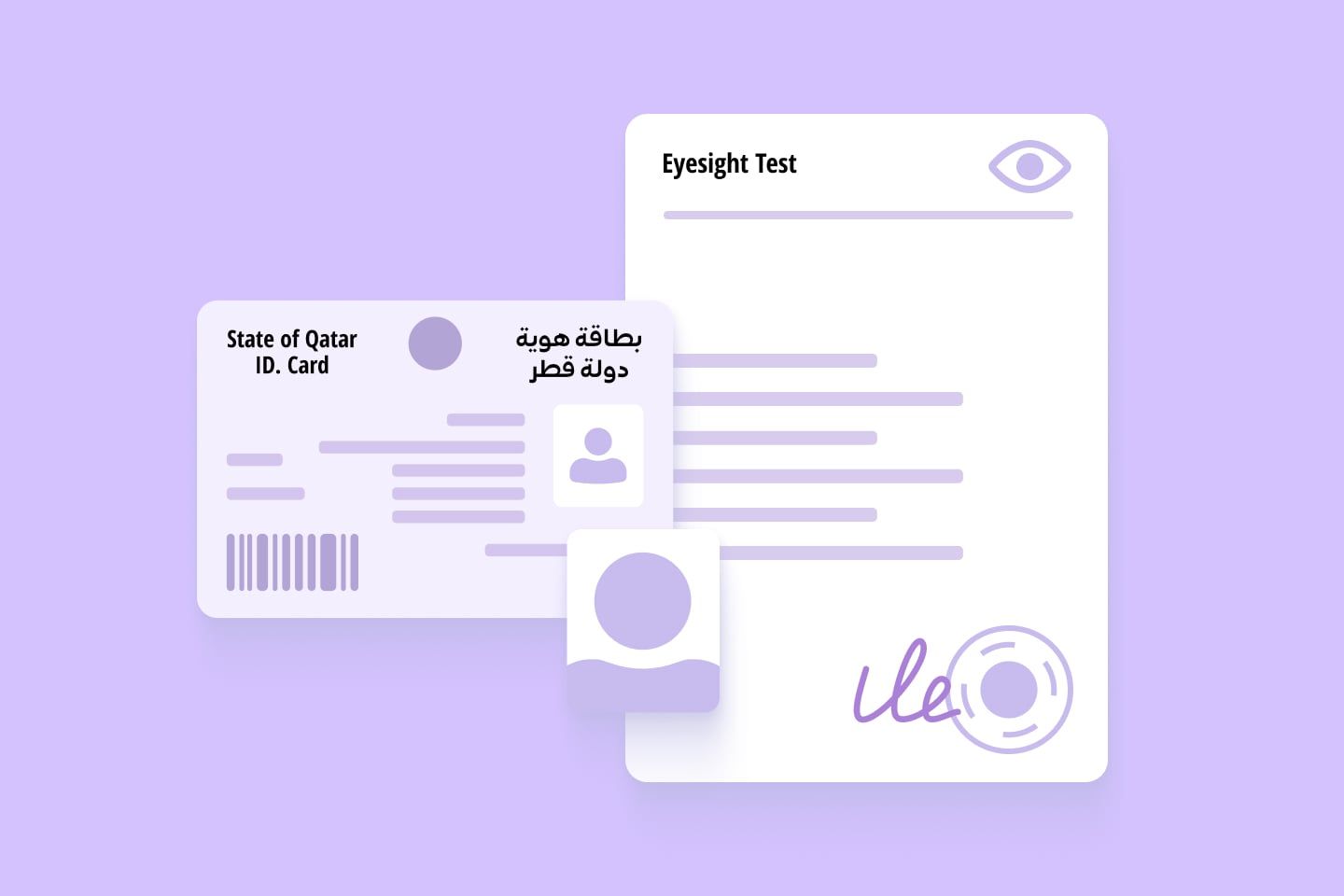
To kickstart your journey toward obtaining a Qatar driving license, you'll need to provide certain documents for enrollment. While the precise requirements can vary slightly between schools, the fundamental documents remain consistent:
How to choose a driving school
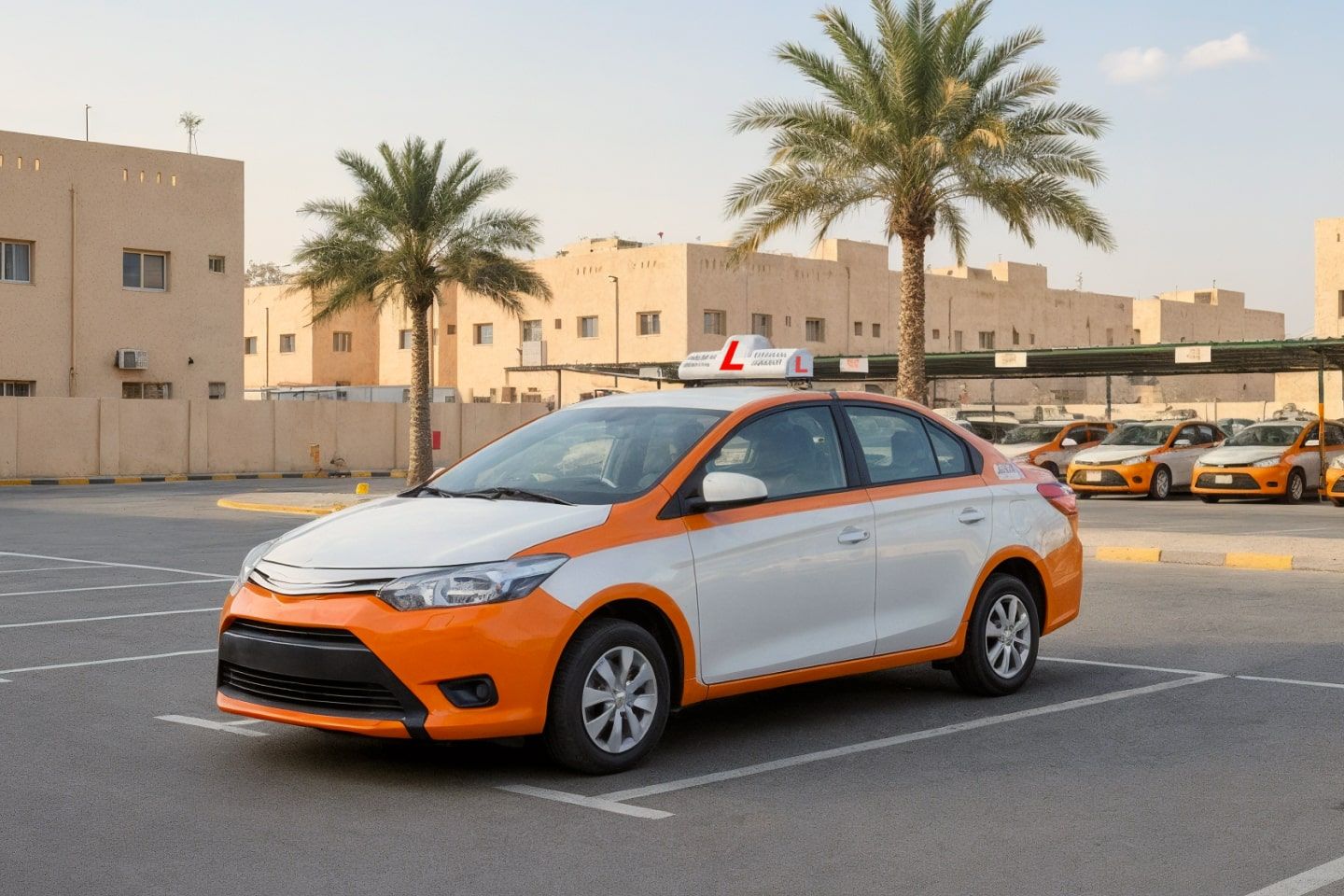
When learning to drive in Qatar, choosing the right driving school is paramount. With several reputable institutions to choose from, each offering a similar quality of knowledge and skills, you may wonder how to pinpoint the best fit for you. Here, we outline key factors to consider when selecting the perfect driving school in Qatar:
Types of training courses available
Driving schools in Qatar typically offer a range of courses to cater to different needs. Ensure the school you choose provides the specific training course you require.
Course fees
Cost can be a decisive factor for many. Compare the fees of various schools to find one that aligns with your budget.
Course duration
The time you have to commit to your driving course can vary. Assess how much time you're willing to dedicate to your training, and select a school that offers a suitable duration.
Availability of VIP courses
Some driving schools offer VIP or expedited courses for those who prefer a faster track to obtaining their Qatar driving license.
First-time passing rates
Research the school's first-time passing rates. A higher rate indicates more efficient training programs.
Instructor experience and professionalism
The quality of instructors is vital. Inquire about the experience and professionalism of the driving instructors at your chosen school.
Educational software quality
Practical learning tools and materials contribute to a more successful driving course. Assess the quality of the school's educational software.
Quality of school facilities
Comfortable and well-equipped facilities can make your learning experience more enjoyable. Tour the school facilities, if possible, to ensure they meet your expectations.
Course types and costs
The majority of Qataris and expats aspire to obtain a driver's license for a regular car. Light motor vehicle driving courses are available in all driving schools across the country. However, the course duration varies depending on your prior driving experience:
Full course: If you've never held a driver's license, you will need to complete the full course. This comprehensive program usually spans 90 to 110 days and encompasses theory lessons, practical driving sessions with an instructor, and the necessary tests.
Half course: Expats with driving licenses from their home countries may be eligible for the half course, which typically lasts 65 to 90 days.
Ultimately, the choice between a full and a half course hinges on your previous driving experience and personal preferences. Now that you have insight into what to consider when choosing a driving school in Qatar and understand the course options available, you're one step closer to achieving your Qatar driving license. In our next section, we'll delve into the costs associated with these driving courses and the steps involved in the licensing process.
Course costs
The prices vary depending on the school and the type of learning course you take — full or half course. Some schools also set different prices for driving lessons with male and female instructors.
|
Driving school |
Full course price |
Half course price |
|
Doha Driving Academy |
QAR 3350 |
QAR 2800 |
|
Al Khebra Driving Academy |
QAR 3820 (QAR 4070 - female instructor) |
QAR 3270 (QAR 3370 – female instructor) |
|
Alijarah Driving Academy |
QAR 3500 |
QAR 2800 |
|
Karwa Driving School |
QAR 3350 |
QAR 2950 |
|
Gulf Driving School |
QAR 3750 |
QAR 3200 |
The prices mentioned above are subject to change, though, and it’s recommended that you confirm the price with respect to your school of choice.
Theory and practice
Driving in Qatar necessitates not only practical skills but also a sound understanding of the rules of the road. Here are the essential aspects of driving in the country to guide you through the learning process.
Driving theory

The ongoing pandemic has prompted Qatar's driving schools to adapt, offering remote theory lessons to their students. These alternative learning methods are designed to cover the theoretical aspects of driving, including road signs and traffic rules. Options may include using the driving school's website, online learning platforms, or dedicated mobile applications.
To excel in your theory lessons, consistency is key. Rather than cramming the days before your test, study a little every day. Self-discipline plays a pivotal role in your success. Consider taking practice theory tests, which are widely available online, to reinforce your knowledge.
Before advancing to the next phase, you must pass a theory test comprising 40 questions. You are allowed a maximum of three mistakes. Prepare diligently, as this test is a crucial stepping stone toward your driver's license.
Driving practice
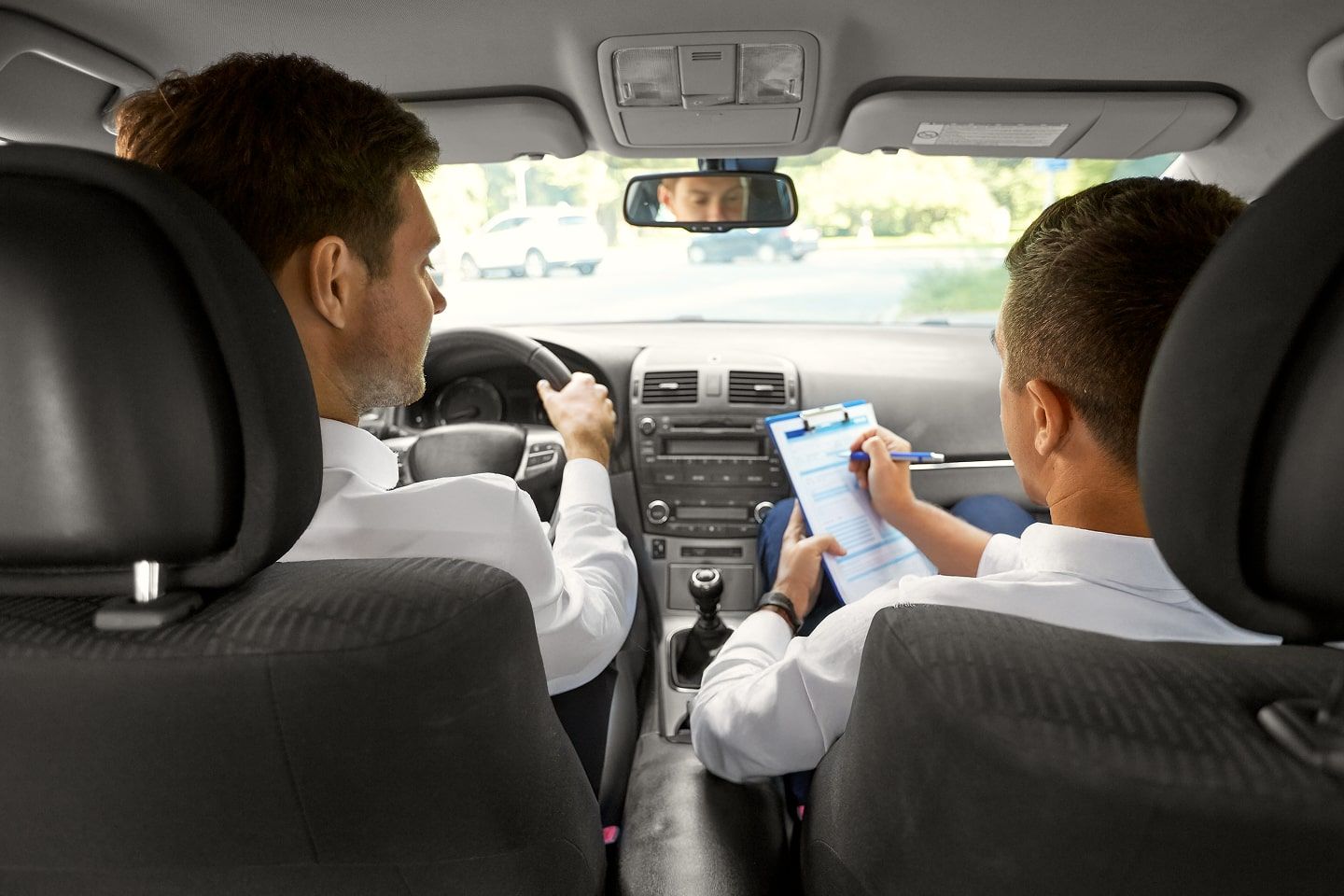
As you progress in your driving education, you'll face an important decision — whether to practice driving with a manual or automatic transmission.
If you opt for learning manual transmission, your driving license will allow you to operate both manual and automatic cars. This comprehensive training begins with the basics, including gear shifting and steering wheel positioning. These fundamentals are typically introduced in traffic simulators, ensuring you have the essential skills before venturing into city driving.
Automatic transmission cars are favored by many for their ease of use. However, selecting this option limits your license to automatic vehicles. You'll learn how to operate the gear lever of an automatic vehicle, gaining valuable practice on driving simulators before your maiden road trip.
The practical phase encompasses a variety of skills, including parking techniques and vehicle control. Training facilities within the school provide a safe environment for initial practice before venturing into city driving. All training vehicles in Qatar must have car insurance.
Upon completion of your training, a driving test awaits. A police officer will evaluate your parking and driving skills. Success in this examination culminates in the issuance of your driving license on the same day.
FAQ
What are the working hours of driving schools in Qatar?
How many lessons does a typical driving course include?
How to make the learning process easier?


